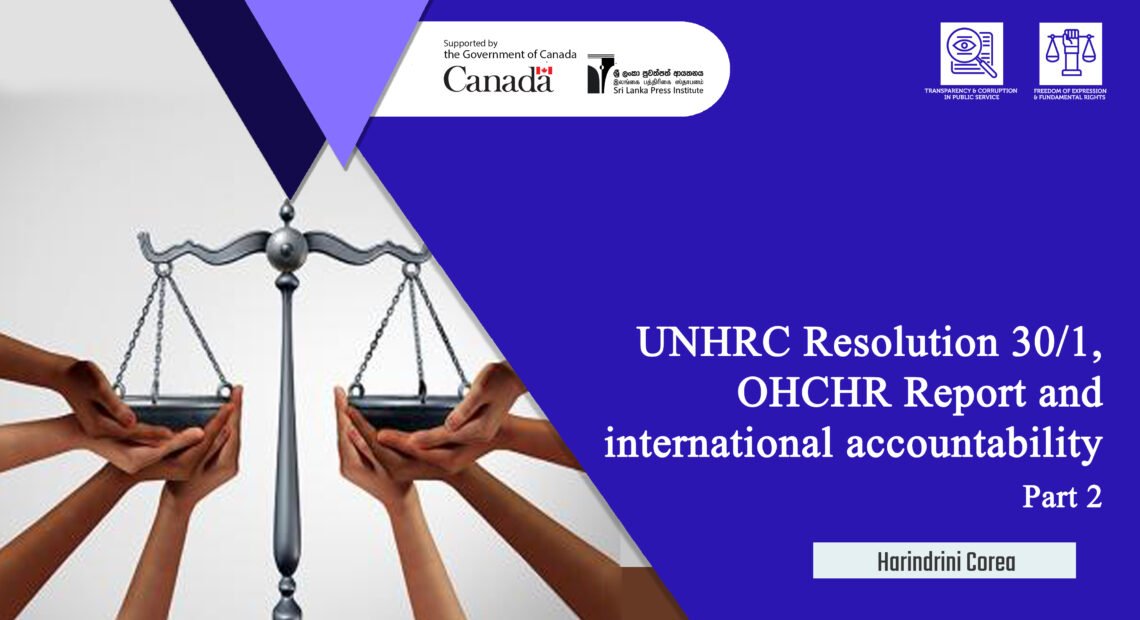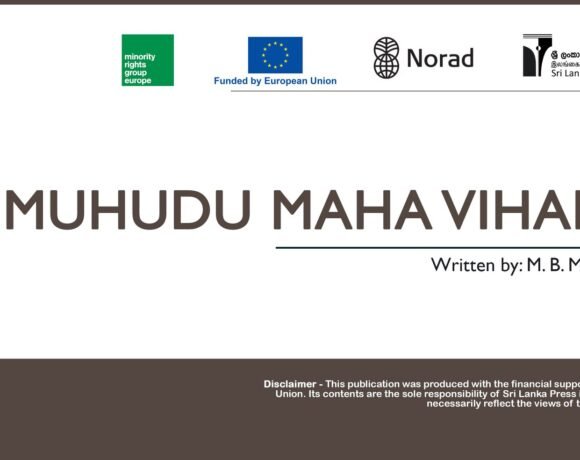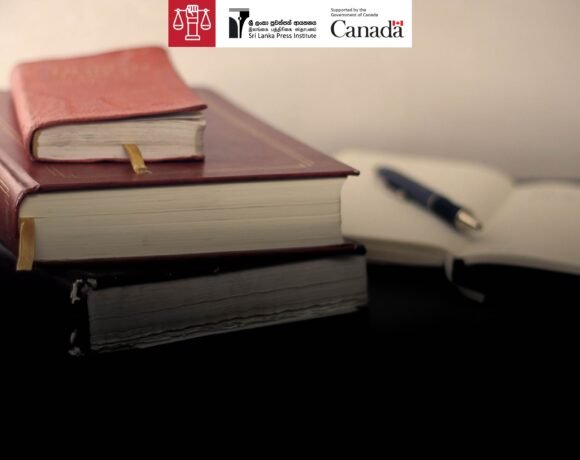
UNHRC Resolution 30/1, OHCHR Report and International Accountability – Part 2
Harindrini Corea
The Report on Sri Lanka, by the Office of the High Commissioner for Human Rights, prior to the 46th session of the United Nations Human Rights Council in March 2021, was published on the 27th of January this year. The Report was submitted as per the United Nations Human Rights Council Resolution 40/1 which requested the Office of the High Commissioner for Human Rights to continue to assess the progress of the Sri Lankan government in ensuring accountability for human rights violations in Sri Lanka and working towards sustainable peace and reconciliation.
The High Commissioner for Human Rights called for strong preventive action to be taken by the international community based on the deteriorating human rights situation and high risk of future violations. The Report notes that the withdrawal of support for UNHRC Resolution 30/1 and the failure to carry out commitments under the Resolution which suggest that domestic accountability measures will not provide justice for human rights violations. The High Commissioner also called on the Human Rights Council to enhance monitoring of the human rights situation in Sri Lanka and to provide accountability options at an international level.
Holding Sri Lanka accountable at the international level could include member states of the UNHRC referring the situation in Sri Lanka to the International Criminal Court, or pursuing investigation and prosecution of international crimes committed by Sri Lanka before their own respective national courts. Sanctions could include the freezing of assets or travel bans against personnel credibly alleged to have committed human rights violations.
Emerging threats to reconciliation, accountability and human rights:
- Militarisation of civilian government
UNHRC Resolution 30/1 provided for the accountability for military personnel, the end to military involvement in civilian life and security sector reforms. However, the OHCHR report notes the increasing militarisation in civilian government. This includes several government entities being brought under the oversight of the Ministry of Defence, the appointment of serving or former military personnel to key administrative posts and the creation of task forces that are composed almost entirely of military and intelligence personnel.
- Reversal of constitutional safeguards
The Report notes the enactment of the 20th Amendment to the Constitution which intensified the power of the executive and hindered the independence and functionality of important institutions such as the Human Rights Commission, the Elections Commission and the National Police Commission.
- Political obstruction of accountability for crimes and human rights violations
The Report notes that the current government has proactively obstructed or attempted to stop investigations and criminal trials in relation to past crimes. The appointment of a Presidential Commission of Inquiry to investigate alleged political victimisation of public officials, members of armed forces and police and employees of state corporations by the previous government has led to interference by the Commission in several human rights cases.
- Majoritarian and exclusionary rhetoric
The Report notes concerns about the increase in the use of an ethno-nationalist and majoritarian rhetoric as well as the exclusion of ethnic and religious minorities from official discourse and policies. This includes the intensification of discrimination against the Muslim community particularly with relation to the COVID-19 pandemic.
- Surveillance and intimidation of civil society and other human rights concerns
The Report notes the increase in harassment and surveillance of civil society organisations, human rights defenders and victims. Furthermore, concerns are also noted with regard to the misuse of the International Covenant on Civil and Political Rights (ICCPR) Act, the continued use of the Prevention of Terrorism Act, including to arrest of prominent lawyer Hejaaz Hizbullah in April 2020, and a series of deaths in police custody.
- Assessment of the implementation of UNHRC Resolution 30/1
The Report notes that neither the previous nor current government of Sri Lanka have established the truth and reconciliation commission or the special judicial mechanism. These amount for two of the four transitional justice mechanisms promised with the others being the office on missing persons and an office on reparations.
- Impunity in emblematic cases
The Report also notes that the lack of progress in key cases with no convictions or conclusions indicate the inability and unwillingness of the State to prosecute and punish perpetrators of crimes when State agents are the alleged perpetrators.








